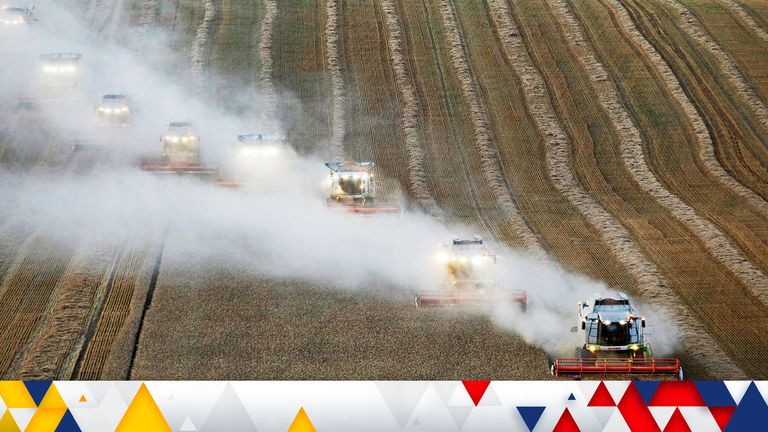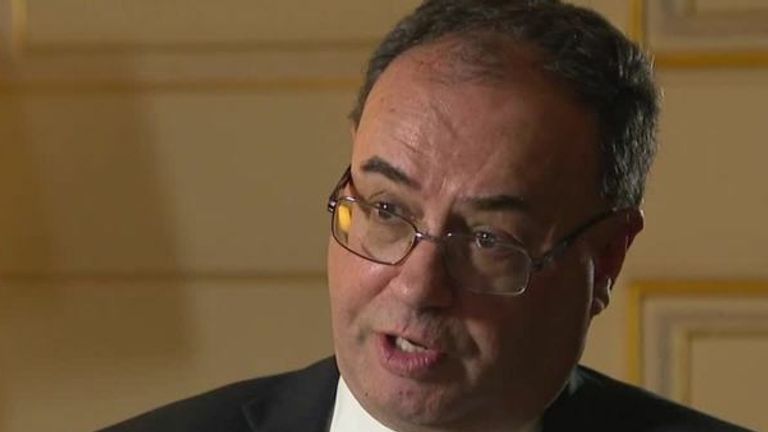Rishi Sunak must choose to either borrow billions more or allow households to suffer an income squeeze that could be the worst since the 1970s, a leading think-tank has warned.
The Institute for Fiscal Studies said the likely impact of the Ukraine crisis on inflation and public finances may force the chancellor to act when he delivers his spring statement later this month.
Without more spending to reflect the worsening cost of living outlook, public sector workers face steep real terms pay cuts and energy bill payers will be hundreds of pounds worse off, the IFS said.
Britain was already facing an inflation squeeze even before Russia’s invasion of Ukraine, with the rate of price increases at a three-decade high and forecast by the Bank of England to top 7%.
Now, a surge in oil and gas prices created by the conflict threatens to add to already spiralling energy bills and fuel costs, helping to lift inflation further.
Experts now think it will climb above 8% – which means that, with wage growth not keeping up the same pace, workers will see their incomes slide even further in real terms.
That leaves the chancellor facing a “huge judgment call” with the squeeze on households “bigger than at any time since at least the financial crisis and quite possibly since the 1970s”, the IFS said.
Higher inflation will wipe out at least a quarter of the real terms increases to public services announced in October, the think-tank has calculated.
It means public sector workers face an average real terms reduction in salary of £1,750, adding to the impact of straitened pay settlements for many of them, including teachers, over the past decade, according to the report.
But making up the shortfall would cost the Treasury £10bn.
Even a below-inflation pay rise of 5% would come with a big bill – £4bn for the NHS and £1.75bn for schools – while eating up big chunks of planned budget increases.
Meanwhile, inflation has blunted the impact of Mr Sunak’s package of measures announced last month to help households with soaring energy bills.
At a cost of £9bn, those measures were expected to offset about half of the £18bn total increase in bills for households, the IFS said.
But the surge in energy bills since that time implies that bills will instead be £43bn higher – meaning that Mr Sunak would have to commit an additional £12.5bn to have the same sort of impact.
The IFS said that, prior to the latest spike in gas and oil prices, a worker on an average £27,500 salary would already have been £500 worse off in real terms this coming year due to bill rises.
They are now likely to be £800 worse off, based on forecasts by experts at Citi, the think-tank said.
That might mean the chancellor having to weigh up whether to continue with an increasingly expensive broad-based approach of giving flat-rate payments to all households, or switch to targeted support for those least able to cope, according to the report.
Read more:
Oil slides and markets rally as Russia sanction supply fears ease
Food poverty campaigner Jack Monroe warns cost of living crisis will be ‘fatal’ for families
Greggs refuses to rule out more price rises as cost pressures become ‘more significant’
IFS director Paul Johnson said: “Rishi Sunak has to make a huge judgment call.
“Will he do more to protect households from the effects of energy prices which have risen even further in the last two weeks?
“If he doesn’t then many on moderate incomes will face the biggest hit to their living standards since at least the financial crisis.
“If he does, then there will be another big hit to the public finances.
“While he had little choice over big state action through the pandemic, his response to this crisis will tell us more about how he sees the limits of government in protecting citizens from buffeting by external forces.”


